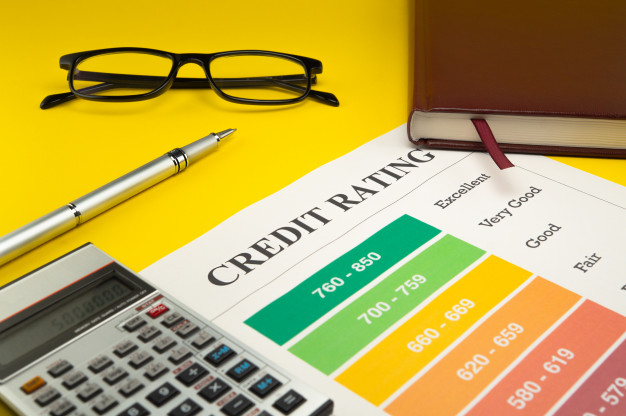Mistakes on your credit report are a big no-no for your financial well-being. They can derail your chances of getting approved for a loan you would need in financing your business, car, or home.
So when you get your credit report, check it thoroughly for errors. If you discover any problem, take immediate steps to resolve it, so you can eventually improve your credit score. You may contact your lender to update your record or you may file a credit report dispute online.
Here's everything you must know about fixing errors on your credit report.
What is a Credit Report Dispute?
A dispute is an appeal or request to correct an erroneous, incomplete, or outdated information on a credit report. The Credit Information System Act (Republic Act No. 9510)[1] gives you the right to dispute any inaccurate data you find on your credit report.
You can file a dispute with the Credit Information Corporation (CIC), the central registry and repository of credit information in the Philippines. The CIC is mandated by law to investigate, verify, and resolve disputed errors on a credit report.
Learn about the CIC: Getting to Know the Credit Information Corporation in the Philippines
Why Should You Correct Errors on Your Credit Report?

Any mistake on your credit report—no matter if it's big or small—will greatly affect your finances.
Let's say your current credit report shows you still have an unpaid balance on a loan. Even if you've already paid it off more than three years ago, potential lenders will see the negative record and possibly decline your application for a loan or credit card or charge you with a higher interest.
Incorrect credit information may also be due to an identity theft[2]. Fraudsters could be borrowing money left and right using your personal information. In such a case, you might accumulate debt without you knowing it.
To prevent these unfair financial disasters, you have to ensure that your credit information is accurate, complete, and updated. If you see an error on your credit report, dispute it immediately so that you can have it corrected or updated.
Related article: What is a Credit Report and Why Do I Need it?
What Types of Errors Can You Dispute?
You can request correction of any of the following inaccuracies on your credit report:
- Incorrect or outdated personal information – Make sure that your name, address, birth date, contact numbers, and other personal details on your credit report are all correct.
- Account information errors – Submitting entities (e.g., banks, cooperatives, government and private lending companies, etc.) might have submitted wrong, incomplete, or outdated details of your loan, credit card, or other financial contracts to the CIC. Errors could be related to the account status (e.g., an active account tagged as closed or vice versa), dates (e.g., incorrect contract start/end dates, last payment dates), outstanding balances, or credit limits.
- Accounts you don't recognize – If your credit report includes an account you never applied for, it could be because of either identity theft or data entry error due to a lender’s submission.
- Outdated negative information – Under R.A. No. 9510, negative credit data (such as unpaid loan balances) can stay on your credit report for only up to three years from when it was settled (i.e., payment of debt). If you settled a defaulted loan more than three years ago but the debt remains on your credit report, you should dispute it.
- No records found – There may be instances when a financial institution you have had or currently have transactions with is yet to submit credit data to the CIC. This will affect you in a way that a timely debt settlement with a bank, for instance, could have been a positive credit information on your side. This can help you build a good credit history but lenders will not take this into consideration if it does not appear on your credit report.
How to File a Credit Report Dispute with the CIC

You can easily dispute errors online through the CIC, whether you got your credit report directly from the agency or any of its accredited credit bureaus. This is free of charge.
The CIC implements the Online Dispute Resolution Process (ODRP) that makes it convenient for people to file a dispute anytime and anywhere.
For consumers with “No Records Found” as indicated on the credit report, you may check whether the financial institution/s in question is/are submitting credit data to the CIC at this link.
And if the financial institution is on the list, you may file a dispute online through the CIC’s ODRP. However, if the financial institution is not on the list, you may send an email to legal@creditinfo.gov.ph with subject line "FI IS NOT ON THE CIC LIST" to initiate the dispute.
Credit Report Dispute Online Filing Procedure
Here are the steps to dispute errors on your credit report:
- Access the CIC ODRP at www.creditinfo.gov.ph/dispute.
- Read and agree to the Terms and Conditions by ticking the checkbox next to each statement.
- Enter the Transaction Reference Number (TRN) as indicated on your credit report which shall not be more than 30 days old. Also provide the email address you used in getting your credit report. Then type the CAPTCHA code and click Next.
- Fill out the ODRP form with your personal information. Click Next.
- The Disputed Subject page is intended for demographic information on your credit report which may be incorrect or outdated. Select the institution type and the name of the financial institution appearing on your credit report. Tick the box next to the incorrect or outdated data (if there's any) that needs to be corrected or updated. Click the Next button.
- If the demographic information on your credit report is correct and up-to-date, click Next to proceed to the Disputed Contract page.
- On the Disputed Contract page, select the lender/company that reported the incorrect/incomplete/outdated information. If the concerned entity is not included in the dropdown list, select “Entity is not in the dropdown list."
- Select the Type of Contract and Type of Dispute and then provide the specific details of your credit report dispute. Click the Next button. You will be asked if you want to file another dispute. Click Yes to repeat the process and file another one.
- Review all your dispute details on the Preview page. Once you've ensured everything is correct, click the Submit button.
Tips on Filing a Dispute with the CIC

Here are some pointers to remember for a smooth dispute process and successful dispute resolution:
- Your credit report must have been accessed/obtained within 30 days when filing a dispute. If it's been more than 30 days since you got a copy of your report, you have to request a new credit report from the CIC before you can dispute the error.
- Provide correct and complete information on the ODRP form. Any error in your filed dispute that keeps the lender from reaching you may lead to termination of your dispute resolution.
What Happens When You Dispute a Credit Report?
After filing a credit report dispute, it goes through investigation, verification, and resolution by the CIC. Here's a quick walk-through of the CIC’s Online Dispute Resolution Process[3]:
1. Dispute filing confirmation
Upon filing a dispute, you and the concerned submitting entity (SE) will receive an email notification of the dispute.
2. Investigation and verification of the dispute
The SE's representative will send you an email requesting all relevant documents that support your dispute. You're expected to respond and attach your supporting documents within five working days.
Also, you must report any offline communication (e.g., phone conversation) with the SE's representative through the CIC Helpdesk.
3. SE's recommendation on the credit report dispute
After reviewing your supporting documents, the SE will submit to you and the CIC its recommendation on whether to accept or reject your dispute.
4. Disputer's acceptance or denial of the SE's recommendation
Within five working days from receiving the recommendation, submit your decision to accept or reject it through the CIC Helpdesk.
5. CIC's dispute resolution
Within three working days after your acceptance or rejection of the recommendation, the CIC will resolve the credit report dispute based on all documents submitted by both parties. The CIC will notify you and the SE via email about the final resolution of your dispute.
If the CIC affirms your dispute, the SE is required to make the necessary correction or update to your disputed information.
Credit Report Dispute FAQs

1. How much does it cost to file a dispute?
You don't have to pay for anything because filing an online dispute with the CIC is free.
2. How long does it take for a dispute to be resolved?
The CIC adheres to the Ease of Doing Business and Efficient Government Service Delivery Act and issues a dispute resolution after three to 20 working days from the date of filing the dispute, depending on whether the dispute is simple, complex, or highly technical.
3. What should I do if I disagree with the dispute resolution?
You may file a credit report dispute again within 15 days from the date the CIC issued its resolution. Re-filing the dispute means you're requesting the CIC to reconsider its resolution. You can re-file only once based on valid grounds, i.e., recent discovery of new evidence.
4. Can I dispute my credit score?
No. You can dispute only the information on your credit report, not your credit score. Your score is computed based on the data on your report, which can change all the time. You may also check the Reason Codes under the bureau score section of the credit report to see the associated basis of your credit score.
If you think your poor credit score is unjustified, check your credit report for any error that could have caused your low score. Then file a dispute online with the CIC.
Read more: Credit Report vs Credit Score: Understanding the Difference
Final Thoughts
Your credit report can be a powerful financial tool so make sure that it is updated and your debts are paid on time. Filing a credit report dispute may be the least among your priorities right now, but make sure to check that it is updated so you will not have difficulties when the time comes that you need to apply for a loan. Your financial future is at stake here, so fix errors on your credit report as soon as you can.

Sources:
- [1] Republic Act No. 9510
- [2] If your basis is stolen identity, this matter may be addressed only through your lender and the regular courts. Stolen identity is not one of the grounds which may be resolved through the online dispute process as explained in this article.
- [3] CIC Online Dispute Resolution Guidelines









